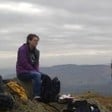Arts and Culture 28 July 2015
Western universities have in recent years been a battleground for campaigners who want their places of work and study to refuse to pair up with Israeli institutions complicit in the state’s crimes.
This week the International Critical Geography Group, an academic body dealing with social and urban geography and related fields, has gone a step further.
The group is holding a conference in the occupied city of Ramallah not as part of the kind of spurious “balance” which mainstream organizations sometimes attempt by organizing events in Israel and the West Bank, but as a clear act of unity with Palestinian scholars.
As the organizers admit in their conference statement, the decision to hold the conference in Ramallah, and the implications of that decision, are not necessarily easy.
In creating the opportunity for Palestinian academics to take part, unhindered by the restrictions and humiliations imposed on Palestinians who seek to travel, the organizers have acknowledged that researchers from many Arab and Muslim-majority countries were excluded by “restrictions and racial profiling imposed at the borders by the Israeli occupation authorities.”
They also admit that some scholars from around the world, either by their own choices or because of their governments’ policies, may see traveling to the West Bank itself as an act of “normalization” with Israel, since it entails crossing through Israeli-controlled borders.
The Critical Geographers Group has, however, clearly stated that it sees its choice of Ramallah for the conference as a political one. All attendees at the event are, according to the conference statement, regarded as:
standing in support of three basic Palestinian rights, stipulated in international law. That is, ending the occupation of the Gaza Strip, the West Bank. including East Jerusalem, and the Golan Heights; recognizing the fundamental rights of the Arab-Palestinian citizens of Israel to full equality; and respecting, protecting and promoting the rights of Palestinian refugees to return to their homes and properties.
For an academic organization formally “committed” to using its educational privileges to “develop the theory and practice necessary for combating social exploitation and oppression,” this act of practical solidarity with Palestinian scholars makes a lot of sense.
Its decision also poses a challenge to other academic bodies to explore similarly hands-on means of supporting their Palestinian colleagues.







